Ibiza History | Repeat Ibiza
Ibiza’s Early Beginnings
Ibiza History: Trade sailors made Ibiza their passage during the recent Stone Age, the Neolithic period. However, evidence of a stable population doesn’t exist during this time. The island started showing signs of habitation during the Bronze Age. It initially housed settlers of Iberian origin before witnessing a series of settlements by various civilizations.
In 654 BC, the Phoenicians landed on Ibiza, marking the beginning of the island’s inhabited history.The arrivals founded Ibiza, providing it with a strong fortress and port for their ships. The island later became a vital point in exploiting salt flats.
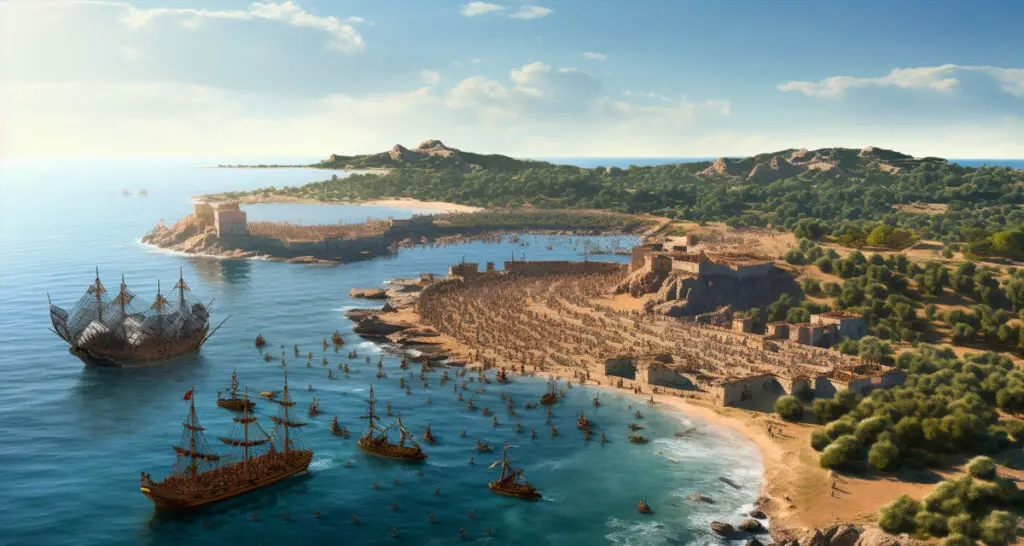
Ibiza’s Rich Archaeological Past
Ibiza holds a fascinating treasure trove of archaeological sites. Explore the Puig des Molins Necropolis and Temple of Tanit to witness the Punic era on the island. Ibiza became a hub for pirates after Carthage’s fall in 146 BC until Rome took over in 70 AD, renaming it Ebusus.
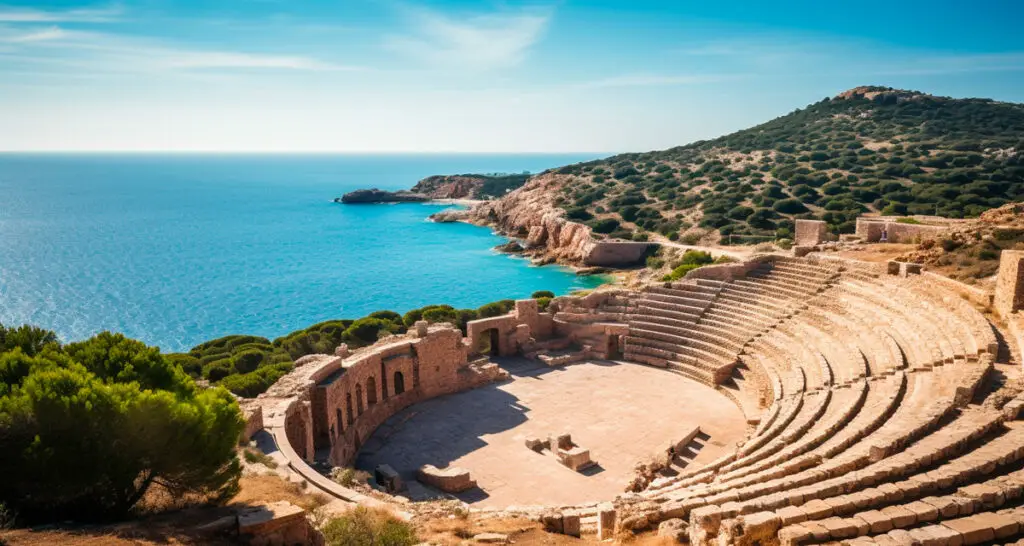
Ibiza under Different Rules
The island saw a tumultuous period of different rulers. It experienced devastation by the Vandals of Genserico in 426 and later passed into Byzantine hands in 554. From 902 to 1229, Ibiza was under Muslim rule, known then as Yebisah. The Balearic Islands gained independence in 1080 after being under Cordoba and Denia’s rule. The island’s economy peaked during the 11th and 12th centuries.
Ibiza was briefly occupied but returned to Muslim rule. Gillerm de Montgrí conquered the island in 1235 and repopulated it with people from Catalonia. It established a municipal government which lasted until 1454.
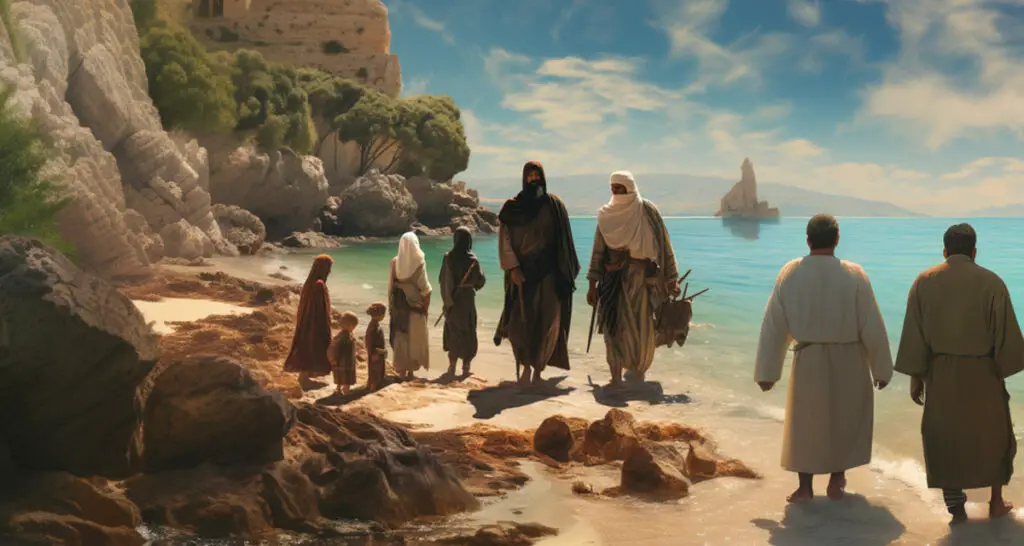
The Ever-Changing Identity of Ibiza
Ibiza Town was founded by the Carthaginians in 654 B.C. and named Pitiusas by the Greeks.The Carthaginians, Phoenician people known as Punic folk by the Romans, turned Ibiza into a significant trading center. The island’s large harbour and strong city walls were built during this time. Salt, or “White Gold,” was the most important good traded, sourced from the Salinas still in use today.
Ibiza was also a significant burial ground for the Carthaginians. Puig des Molins burial grounds contain the largest collection of Punic artifacts, including those of the Goddess Tanit.
When the Romans conquered the Balearic Islands in 123 B.C., they called the island Ebusus. The island retained its independence as a confederation town, with traces of the Roman occupation visible today.
Unraveling the Mystery of the Dark Ages
The island went through significant changes and transformations between the 5th and 9th centuries A.D., with limited historical records from this period. During this time, Ibiza faced invasions from the Vandals, the Barbarians, and the Byzantines. The Byzantine influence is evident in the island’s irrigation and share-cropping systems.
The Arab rule, starting in the 9th century A.D. and lasting for nearly 500 years, left an indelible imprint on Ibiza’s cultural fabric. They called the island Yebisah and built a large mosque and fortified city walls. This period saw economic growth, with salt fields, agriculture, and fishing becoming significant income sources.
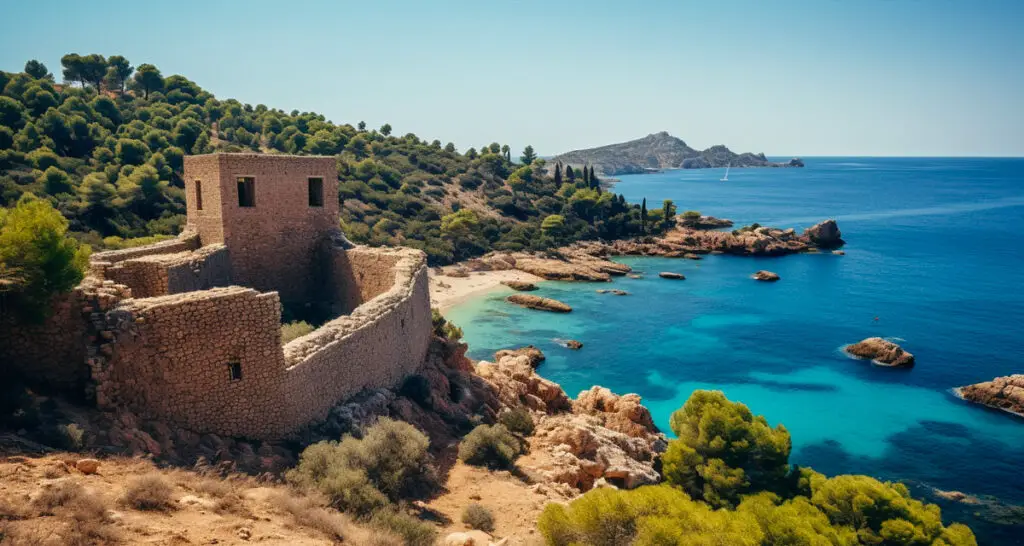
The Catalan Conquest and Subsequent Years
On August 8, 1235, the Catalans captured Ibiza. This capture brought a significant change in the island’s cultural and religious landscape, with the Arab mosque replaced by the current cathedral and villages renamed after Christian Saints. The following centuries saw neglect from the mainland Spanish rulers, leading to the island’s recurrent plundering by pirates, forcing the villagers to fortify their churches for protection.
Ibiza in the Modern Era

From 1960, tourism began to boom in Ibiza, turning the island into a popular destination known for its hippie movement and later for its vibrant nightlife. Ibiza’s beautiful beaches and pleasant climate attracted tourists, becoming the island’s primary income source alongside construction. Today, Ibiza stands as a synonym for partying and nightlife, home to some of the best nightclubs globally, attracting visitors from all corners of the continent during the summer season.
In the unfolding history of Ibiza, the island has transformed from an ancient civilization settlement to a bustling tourist hotspot, a testament to its resilience and adaptability.
Car Rental in Ibiza – Secure the Best Deals and Save Up to 70%
In the exciting realm of car rental in Ibiza, ‘Repeat Ibiza‘ excels through its strategic partnership with DiscoverCars, an industry leader in online car rental reservations. Together, they diligently compare car rental prices from a multitude of companies to offer the ideal option for each traveler’s unique needs.

Regrettably, numerous sites obscure extra charges and fees. In contrast, Repeat Ibiza and DiscoverCars.com provide an all-inclusive quoted price that embodies all mandatory fees, taxes, and extras, ensuring no unexpected costs at the rental desk.



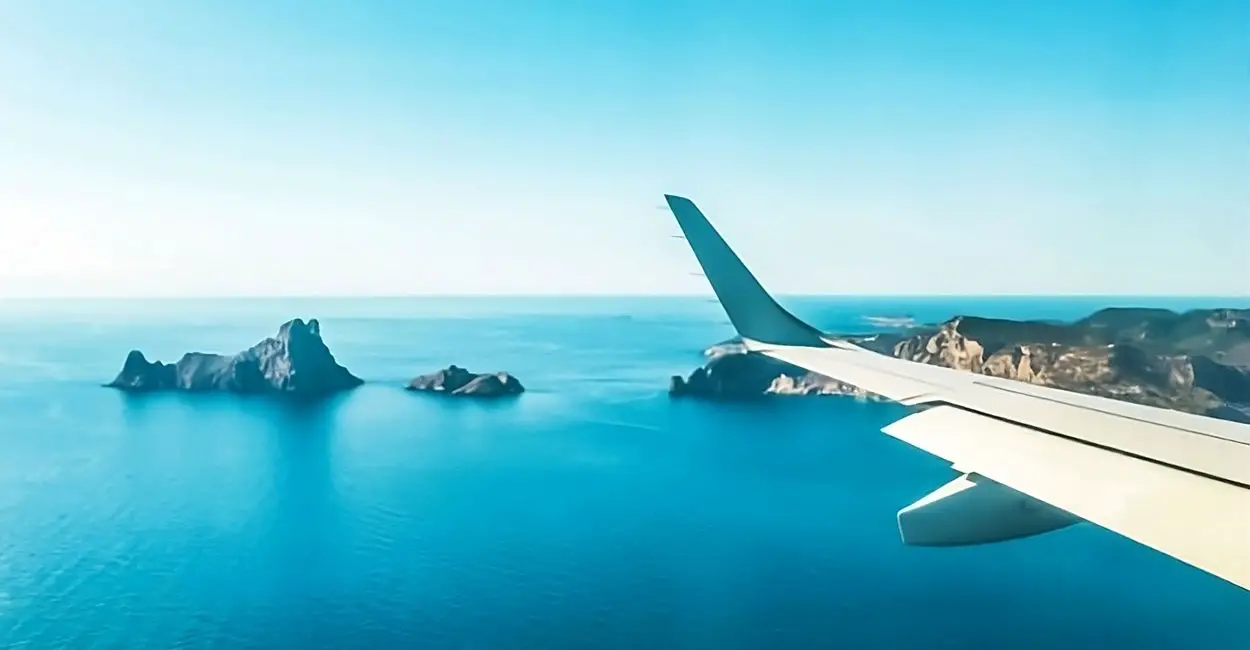
Leave a Reply